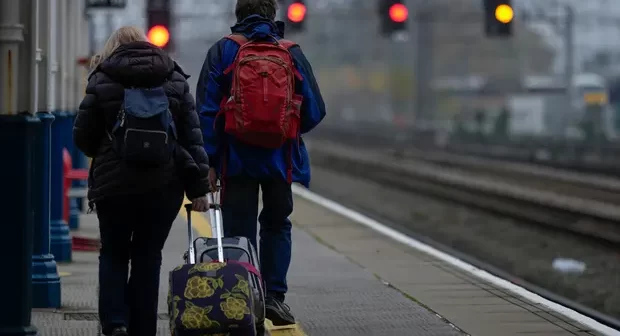Train passengers braced for disruption as the first 48-hour rail strike of the week began on Tuesday in a months-long row over pay and conditions.
About 40,000 workers will strike on Tuesday and Wednesday, as well as Friday and Saturday, after the UK’s biggest rail union, the RMT, voted to reject the latest offer.
As the strikes by members of the RMT at Network Rail and 14 train operators got under way, only about a fifth of train services are expected to be running around the country on those days.
Trains will run between 7.30am and 6.30pm with a reduced service on main intercity and urban lines, with no trains at all in much of rural England, Scotland and Wales.
The RMT has held a series of strikes since June in an increasingly bitter dispute with Network Rail. The RMT general secretary, Mick Lynch, said it was a “huge rejection of Network Rail’s substandard offer and shows that our members are determined to take further strike action in pursuit of a negotiated settlement”.
Network Rail said the strikes would “cause misery to passengers right across the country”. But Lynch vowed to continue the battle for “decent pay increases and good working conditions”.
Another union, Unite, voted to accept the offer from Network Rail, which owns and operates Britain’s tracks, signalling and most of its big stations. A third union, TSSA, has suspended industrial action while it ballots its members.
There will be further disruption from 18 December until 2 January, because of an overtime ban across 14 train operating companies imposed by the RMT, and more strikes on 3-4 and 6-7 January. Another strike will mainly affect engineering works from late Christmas Eve until 7am on 27 December.
Network Rail urged passengers to seek other ways to travel and for those who must travel by train to plan ahead and check with operators for the latest information on services.
Source: The Guardian

